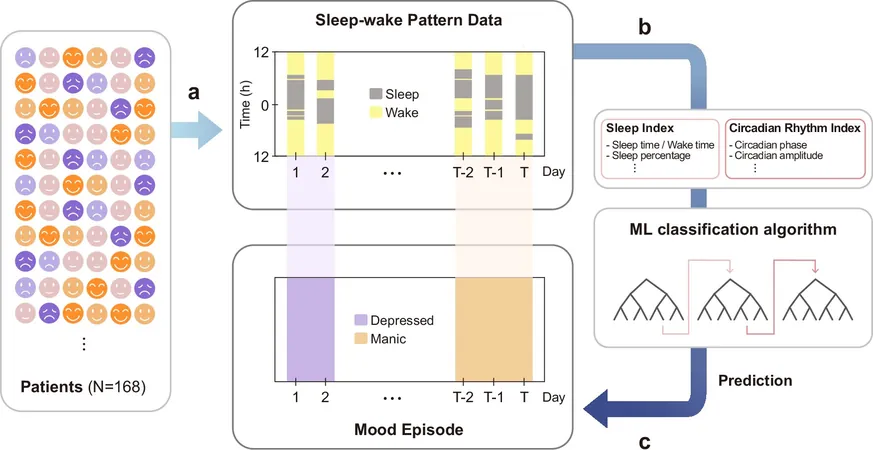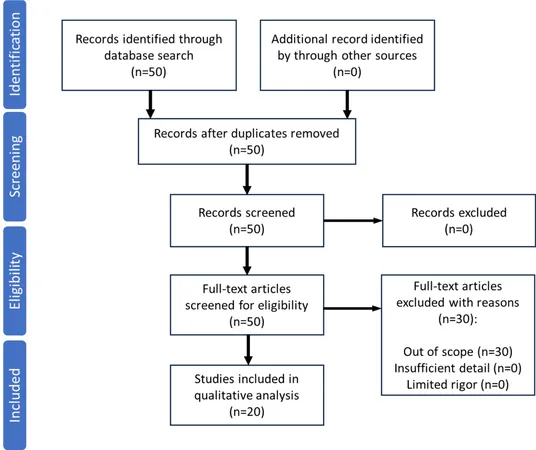
Revolutionizing Mood Disorder Management with Wearable Tech: A Breakthrough Model Based on Sleep Patterns
2024-11-19
Author: Nur
Introduction
In an exciting development for mental health, a research team spearheaded by Chief Investigator Kim Jae Kyoung from the IBS Biomedical Mathematics Group, along with Professor Lee Heon-Jeong from the Korea University College of Medicine, has unveiled a groundbreaking model capable of predicting mood episodes in patients with mood disorders using data exclusively from wearable devices. This innovation comes at a crucial time as the importance of mental health continues to be at the forefront.
The Connection Between Mood Disorders and Sleep
Mood disorders, including depression and bipolar disorder, have long been linked to disruptions in sleep and circadian rhythms. With smartwatches and other wearable technologies gaining traction, collecting health data seamlessly has never been more achievable. However, the challenge has been that existing predictive models often rely on a myriad of data types, which complicates the data collection process and restricts their practical application in the real world.
A Breakthrough Approach
Breaking this barrier, the research team focused on a simpler approach—predicting mood episodes using solely sleep-wake pattern data. By meticulously analyzing 429 days' worth of data collected from 168 participants diagnosed with various mood disorders, the researchers identified 36 distinct features related to sleep and circadian rhythms. Utilizing advanced machine learning algorithms, they achieved stunning accuracy in predicting different types of mood episodes: depressive (AUC of 0.80), manic (AUC of 0.98), and hypomanic episodes (AUC of 0.95). This substantial achievement has been documented in the esteemed journal, npj Digital Medicine.
Key Findings
One of the pivotal findings of this study is the correlation between daily circadian rhythm variations and mood episodes. Specifically, patients with delayed circadian rhythms showed an increased likelihood of experiencing depressive episodes, whereas those with advanced rhythms had a heightened risk of manic episodes. This insight not only paves the way for more effective monitoring of individual circadian changes but also offers a beacon of hope for personalized treatment strategies.
Expert Insights
Professor Lee Heon-Jeong remarked, “This study validates the potential of wearable technology in enhancing mental health management by predicting mood episodes based solely on sleep-wake data. We envision a future where mood disorder patients can harness smartphone applications for tailored sleep pattern recommendations, ultimately aiming to reduce the likelihood of mood disturbances.”
Conclusion and Future Directions
As the field of digital medicine continues to expand, the implications of this research could transform the landscape of mood disorder treatment. Imagine a world where you can proactively manage your mental health—staying ahead of mood fluctuations before they escalate into severe episodes. The possibilities could be endless, and with this innovative model, we may be closer to that reality than ever before. Stay tuned for further advancements as this research unfolds and explores the intricate relationship between technology, sleep, and mental health!





 Brasil (PT)
Brasil (PT)
 Canada (EN)
Canada (EN)
 Chile (ES)
Chile (ES)
 España (ES)
España (ES)
 France (FR)
France (FR)
 Hong Kong (EN)
Hong Kong (EN)
 Italia (IT)
Italia (IT)
 日本 (JA)
日本 (JA)
 Magyarország (HU)
Magyarország (HU)
 Norge (NO)
Norge (NO)
 Polska (PL)
Polska (PL)
 Schweiz (DE)
Schweiz (DE)
 Singapore (EN)
Singapore (EN)
 Sverige (SV)
Sverige (SV)
 Suomi (FI)
Suomi (FI)
 Türkiye (TR)
Türkiye (TR)